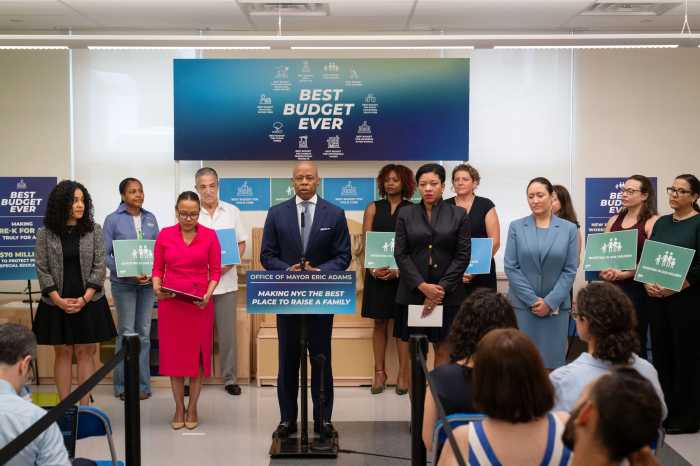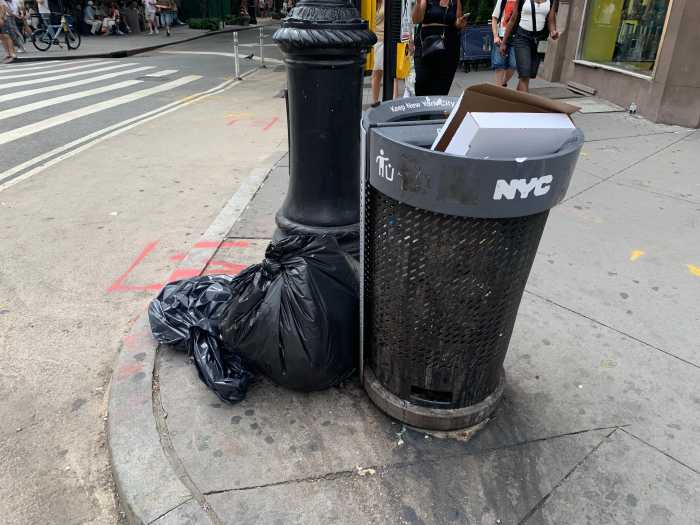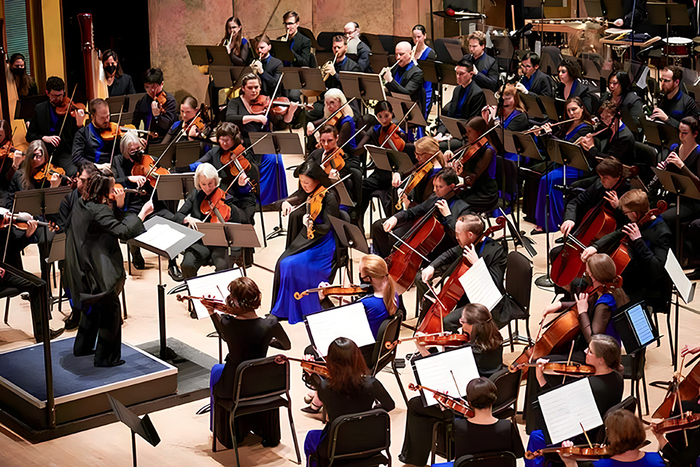Three weeks ago, in this space, we stated our position on term limits. Since that time, there have been major developments on the issue at City Hall, yet our position has remained resolute, and will continue to remain so: Yes, we think three terms — or 12 years in office — are better than two for city officials, because it allows them to learn the ropes and bring their full expertise to bear; and because being limited to only two terms causes politicians constantly to scramble just to hold a job, instead of focusing on the real issues that need their attention.
And, yes, in last month’s editorial, we said we think Mayor Bloomberg should be allowed a chance to run for a third term and that his business acumen would surely help in these troubled financial times. But we stressed, in no uncertain terms, unequivocally, that term limits should only be extended by a voter referendum.
Yet, the mayor and Speaker Chris Quinn subsequently have rocked the city’s very political foundations by declaring that they support changing term limits legislatively — without a vote by the public, this despite two previous referenda in the 1990s that saw thousands of New Yorkers back term limits of eight years.
Quinn has been taking more heat than the mayor — and rightfully so. She could tell the mayor no, and the matter would be ended. Elected on her progressive credentials, Quinn has essentially become the mayor’s enabler. The line between the executive and legislative branches of city government has been erased: With Quinn’s abiding concern appearing to be to ingratiate herself with the mayor, to secure his support for a future mayoral run of her own, we’ve lost our “checks and balances” at City Hall. This week, the Post’s Page Six reported if Quinn loses her speakership, Bloomberg has now assured her a job as deputy mayor.
Quinn’s actions are riven with conflict of interest. It’s safe to say she has lost a significant amount of her former progressive base due to this dismaying turn of events.
As a result, with the council still deeply divided on the issue, and a vote just one week away, it’s up to our other local legislators to hold the line in the face of what is no less than an assault on democracy. Councilmember Rosie Mendez has been sending out a letter to constituents, stating her position — and that position is truly laudable.
Mendez says she won’t support the bill recently introduced in the council to extend term limits to three terms. Mendez derides the bill as a “last-minute action,” and says that if any changes are to be made to term limits, “the only democratic way to do it is through a referendum passed by the electorate.” We should note that Mendez would not be term-limited out of office at the end of 2009.
In fact, Mendez is against term limits for councilmembers, but supports them for the mayor and possibly the speaker, as well, because of the power they hold. On the other hand, she feels legislators need adequate time to learn government’s processes, and that eight years isn’t enough. Nevertheless, she feels it’s the voters who must decide.
Councilmember Alan Gerson has in the past, and again just last month, stated he only favors changing term limits through a referendum. He does support extending limits to a third term — but, again, only by popular vote.
On Tuesday, Gerson told us he was “very angry” at the mayor for not acting sooner to put the term-limits issue on the ballot for either last year’s or this year’s general election.
And yet, for all his indignation, Gerson said he is “uncommitted” on whether he will vote to allow the council to legislatively extend term limits. He said he’ll decide after this week’s public hearings.
Every vote counts, and Gerson — who would be term-limited out of office at next year’s end — must find his backbone on this issue and do the right thing. Mendez is helping lead the way, and we hope Gerson joins her.
Voters will remember, as will we, how our councilmembers acted on this critical issue of democracy.
The use of the current economic crisis by the mayor and Quinn to short-circuit the democratic process is, at its root, unseemly. Whether or not one supports term limits, the idea of changing them without a popular vote is unconscionable.






































